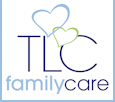What a Night Nanny Does (and Doesn’t Do)
What a Night Nanny Does (and Doesn’t Do)
Bringing home a newborn is one of life’s most exciting moments — but it can also bring weeks (or months) of sleepless nights. Many families turn to a night nanny for help during this transition.
This guide explains exactly what a night nanny does, what’s outside their role, and how they can support both baby and parents.
What a Night Nanny Does
1. Provides Overnight Newborn Care
Night nannies arrive in the evening and stay through the night, tending to a baby’s needs so parents can rest. This typically includes:
- Bottle feeding or bringing baby to a breastfeeding parent
- Burping after feeds
- Diaper changes
- Soothing and settling the baby back to sleep
2. Supports Healthy Infant Sleep Habits
Many night nannies are experienced in gentle sleep strategies — from swaddling techniques to maintaining a calm nighttime environment — that encourage longer, more restful stretches of sleep.
3. Tracks Nighttime Routines
Detailed logs of feeding times, diaper changes, and sleep patterns help parents monitor their newborn’s development and discuss progress with a pediatrician if needed.
4. Offers Newborn Care Guidance
Parents can benefit from the night nanny’s experience on topics like soothing a fussy baby, safe sleep practices, and milk storage for pumping parents.
What a Night Nanny Doesn’t Do
1. General Housekeeping
While night nannies may clean bottles or tidy the nursery, they do not typically perform household chores like laundry, cooking, or cleaning outside of baby care.
2. Medical Procedures
Unless separately licensed, a night nanny is not a medical professional. They can spot potential issues and alert parents but do not diagnose or treat medical conditions.
3. Daytime Childcare
The night nanny’s role is focused on overnight care. Families looking for daytime support may need a separate caregiver or newborn care specialist.
When to Consider a Night Nanny
Parents may find overnight support especially valuable:
- In the early postpartum weeks to aid recovery
- When managing multiples (twins, triplets)
- If a parent is returning to work soon after birth
- For additional help during growth spurts or sleep regressions
